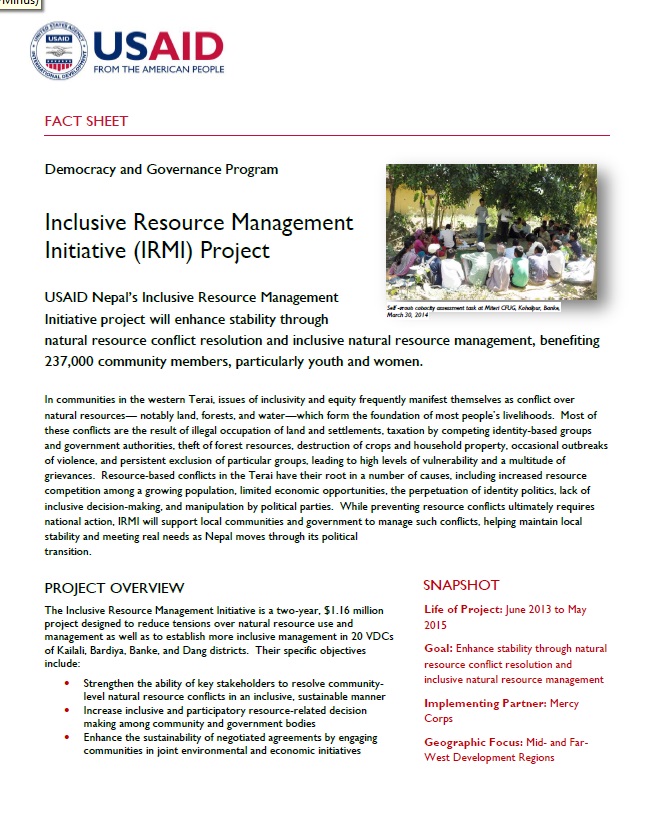In communities in the western Terai, issues of inclusivity and equity frequently manifest as conflict over natural resources— notably land, forests, and water—which form the foundation of most people’s livelihoods. Most of these conflicts simmer at a stalemate, marked by illegal settlements, double taxation by identity-based groups and government, theft of forest resources, destruction of crops and household property, occasional outbreaks of violence, and persistent exclusion of particular groups, leading to high levels of vulnerability and grievance. Resource-based conflicts in the Terai have their root in a number of causes, including increased resource competition among a growing population, limited economic opportunities, the rise of identity politics, lack of inclusive decision-making, and manipulation by political parties. While preventing resource conflicts ultimately requires national action, IRMI will support local communities and government to manage such conflicts, helping maintain local stability and meeting real needs as Nepal moves through its political transition.
PROGRAM OVERVIEW
The Inclusive Resource Management Initiative is a two-year, $1.16 million project designed to reduce tensions over natural resource use and management as well as establish more inclusive management in 20 VDCs of Kailali, Bardiya, Banke, and Dang districts. In partnership with local partners Backward Education Society and Shakarmi Samaj, IRMI will benefit 237,000 community members, particularly youth and women, in these four districts that experience natural resources pressures. The project will bring participants together in multiple fora, helping to break down barriers between divided communities through repeated interactions and collaborative problem solving.








Comment
Make a general inquiry or suggest an improvement.